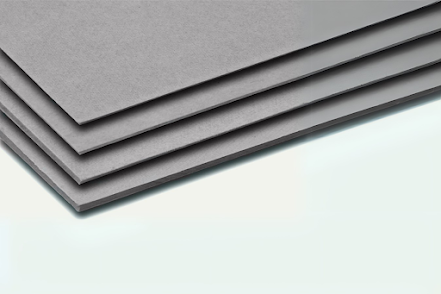Top Advantages of Recycled Board in Modern Manufacturing
In today’s world, industries are under pressure to become
more sustainable and eco-conscious. One of the easiest ways to reduce
environmental impact is by choosing materials that are both efficient and
earth-friendly. That’s where the top advantages of
recycled board in modern manufacturing come in. This innovative
material is gaining popularity not only for its green credentials but also for
its cost-effectiveness and versatility.
What Is Recycled Board?
Recycled board is a paper-based material produced by
reprocessing waste paper and converting it into new sheets. Unlike virgin
boards, which require freshly cut trees, recycled boards use post-consumer
waste. It can be used in a wide range of applications, including packaging,
product boxes, and printing materials.
Why Is Recycled Board a Game-Changer?
There are several top advantages of recycled board in modern
manufacturing that make it the preferred choice across industries. Let's
explore the reasons below:
Environmental Benefits of Recycled Board
One of the top advantages of recycled board in modern
manufacturing is its environmental impact. By reusing paper waste, we reduce
the amount of garbage sent to landfills and lower greenhouse gas emissions.
Lower Carbon Footprint
Manufacturing recycled board requires significantly less
energy than producing virgin paper. This means fewer emissions and a smaller
carbon footprint.
Reduces Deforestation
Using recycled board directly cuts down the demand for
virgin pulp, helping preserve forests and biodiversity.
Cost-Effectiveness for Manufacturers
Another key reason why businesses are adopting recycled
board is its cost-efficiency. One of the top advantages of recycled board in
modern manufacturing is the reduction in raw material costs.
Affordable Material Option
Since it's made from waste paper, recycled board is cheaper
to produce, making it a budget-friendly option for packaging and print.
Lower Disposal Costs
Because it is biodegradable and recyclable, recycled board
reduces the expenses associated with waste management.
Versatility Across Industries
The top advantages of recycled board in modern
manufacturing extend to its incredible flexibility.
Widely Used in Packaging
From food and cosmetics to electronics, recycled board
serves as a sturdy and reliable packaging material.
Ideal for Printing and Branding
Recycled board can be easily printed on and customized,
making it suitable for marketing and retail applications.
High Strength and Durability
Many manufacturers worry that recycled board may lack
durability. However, one of the top advantages of recycled board in modern
manufacturing is its improved strength through modern processing
techniques.
Suitable for Heavy Products
Recycled board can be engineered to handle weighty or
fragile items, thanks to technological improvements.
Moisture Resistance Options
With added coatings or laminates, recycled board can also
become moisture-resistant, expanding its uses in diverse industries.
Consumer Appeal and Eco Image
Today’s consumers actively support eco-friendly brands. The top
advantages of recycled board in modern manufacturing include its role in
building a sustainable brand image.
Brand Loyalty Through Sustainability
Using recycled board helps companies align with the values
of environmentally conscious customers.
Compliance with Green Standards
Many countries now enforce regulations around eco-packaging.
Recycled board helps meet those requirements easily.
Conclusion
The top advantages of recycled board in modern manufacturing
go far beyond just being eco-friendly. It's a material that supports cost
savings, strengthens brand value, and meets the expectations of both consumers
and regulators. While traditional boards still have their place, the future
clearly leans toward sustainable alternatives. For industries ranging from
packaging to printing, switching to recycled board isn’t just a trend — it’s a
strategic move.
In many cases, industries that previously used Book
Binding Board are now finding better performance and value in recycled
board. As environmental awareness continues to grow, adopting recycled
solutions is not only responsible but also profitable.
Whether you're a manufacturer or a brand owner, embracing
the top advantages of recycled board in modern manufacturing can lead to a
smarter, greener future.
FAQ: Common Questions About Recycled Board
Q1. Is recycled board as strong as
virgin board?
Yes, modern manufacturing techniques have made recycled board just as strong
and reliable for most applications.
Q2. Can recycled board be used for food
packaging?
Yes, when treated with food-safe coatings, recycled board is commonly used for
food-grade packaging.
Q3. Is recycled board more expensive
than regular board?
Not usually. In many cases, recycled board is more affordable, especially when
considering long-term environmental benefits.
Q4. How many times can recycled board be
reused?
Paper fibers in recycled board can be reused 5 to 7 times before they degrade
too much for new paper products.



Comments
Post a Comment